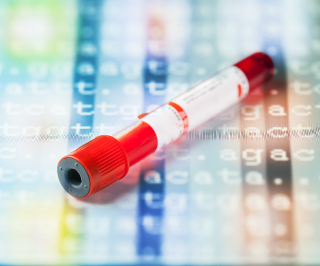
Image Credit: jxfzsy / iStock
New research suggests that genomics may enable more precise matching for blood transfusions. Leveraging whole genome sequencing technology, an international team of investigators has developed an algorithm that expands profiles for blood donors beyond blood type and Rh factor and identifies red blood cell (RBC) and platelet antigens.
Blood group antigens differ from person to person—more than 30 platelet and 300 RBC antigens exist, making it more difficult to find a suitable match for blood transfusions. Each year, the Federal Drug Administration receives up to 16 death reports due to mismatches in RBC antigens that are unattributable to A, B and O blood group differences. Testing options for antigens are limited.
“Although pre-transfusion compatibility testing largely relies on serological methods, reagents are not available for many antigens. Methods based on single-nucleotide polymorphism (SNP) arrays have been used, but typing for ABO and Rh—the most important blood groups—cannot be done with SNP typing alone,” wrote the researchers in a Lancet Haematology article that summarizes their work with bloodTyper, a computer software algorithm that uses whole genome sequencing to type RBC and platelet antigens.
Researchers first obtained genomic data from 110 participants in the MedSeq Project, a randomized controlled trial exploring uses of whole genome sequencing in healthcare, to assess how bloodTyper measured up against more conventional SNP and serology methods in typing 38 antigens in 12 blood-group systems and 22 human platelet. In a second phase, researchers acquired genome sequencing data from 200 participants of European ancestry in the INTERVAL trial to compare bloodTyper with serological methods.
BloodTyper’s accuracy exceeded 99% when compared with other methods among the MedSeq genomes. Its developers were able to fine-tune and improve its accuracy through the several rounds of testing, raising its concordance level from 99.5% among the first 20 MedSeq genomes to 99.8% for an additional 90 genomes. A final algorithm was used to validate the genomes of the INTERVAL participants and was found to be 99.9% concordant with other methods in the typing of 21 RBC antigens.
“Further investigation is needed, but this algorithm might facilitate routine genetic prediction of all key blood-group antigens with a similar level of fidelity to that of current serological or SNP array
approaches, potentially transforming the way in which safe blood products are provided to patients,” the authors concluded.
Adding grist to the findings, a related editorial referred to the research as a “landmark in the application of genotyping because it provides a basis for integration of whole-genome sequencing into a high-throughput workflow, a prerequisite for automation.”
One significant piece of the final algorithm is it ended up finding an RHD variant allele common in those of African descent. “In patients with sickle-cell anaemia, variant alleles in the Rh blood-group system are problematic because these patients develop complex Rh-related antibodies that pose a problem in compatibility matching,” the editorial’s authors wrote. “Allele matching of transfusions has the potential to improve the clinical care for these patients.”